The Slaughter House
November 5, 2021
Beams of sunlight dance, finding ways to shine through the splotchy October fog covering the windows of the second-floor classroom. But none of the students pay any mind. Their eyes are fixed on what an outsider might interpret as a teacher’s boiling temper. However, the students are well aquatinted with the powerful pace and abandoned black desk chair; the loud tone that rips loose leaf paper from binder rings and draws the ink from pens. The gaze that greets the students is one of fiery passion and excitement. An energy radiates through the room, shaking the posters on the walls and snatching away any of the morning’s grogginess. The morning bell finally rings. Class has begun.
It is difficult to graduate from Springville High School without entering the Slaughter House. It is a classroom feared by freshman and revered by alumni. A place where pencils are banned, hand cramps are common, and something is always due.
Shannon Slaughter, known as Coach Slaughter, or affectionately as just Slaughter by his students, wears many hats: cowboy hats, Springville Tigers hats, Florida Gators hats, but never, ever Georgia Bulldog hats. Slaughter is a man with many passions and drives. He is an inspiring teacher, a successful musician, and, most importantly, a loving father and husband.
As Springville’s Pre-AP and AP U.S. History teacher, Slaughter has aided many legendary alumni to a qualifying Advanced Placement exam score. All his former students sing his praises throughout the halls, and his current students feel confident they will one day join in the chorus.
Current APUSH student Owen Colley is one of these hopefuls. Owen admires Slaughter for his ability to go above what is required of him, not just teaching history, but life lessons, economic tips, and sharing hilarious historical tidbits. “He’s very open,” Owen shares, “and can answer almost any question. He also grades harder than the college board, which will be very helpful once exam time actually comes.”
Slaughter’s ability to intimidate does not leave his students trembling with fear, but rather with a sense of desire for his approval. They want a qualifying exam score not only for themselves but for Slaughter. They want to write with fervor because he expects them to.
Slaughter’s passion for history has been with him for most of his life, but it was his professor, Dr. Peggy Farmer at Radford University, who gave him the final encouragement he needed to pursue teaching as his career. After Slaughter presented a social studies project to his class, Dr. Farmer told him he had an incredible ability to weave together stories and history in an entertaining and captivating manner.
His story-like teaching methods have his students on the edge of their seats. Sixteen-year-old Junior Ava Martin looks forward to his class every day, not to enjoy her classmates’ company or take a nap, but to learn. How rare is it in today’s time for a student to desire knowledge so much that they read their textbook, not out of obligation, but in anticipation for what will happen next? How rare is it for a teacher to inspire such a desire for knowledge and deeper understanding? For Springville students this idea is not a fantasy; it’s very real.
Not only does Slaughter inspire hard work, his students also brag that he is a ton of fun in class. He often treats his classes to donuts and allows them to make coffee from his Keurig anytime they like, as long as they bring their own mug. However, his students’ favorite days are when Slaughter moseys into the classroom holding one of his precious guitars.
Not only is Slaughter incredibly excited about his history class, he also has a great love for music. Specifically, bluegrass. He often combines his passions by giving special performances to his students. His voice carries out the door and into the history hallway, making those skipping class to wander, drift towards the familiar melody. Sometimes he sings songs written by others, inspired by historical events, and sometimes he sings his own music. Either way, the students are silent, listening intently or eagerly singing along.
Alanna Howard, a former student, recalls one of those days two years ago when the words Coach Slaughter sang were so beautiful, tears sprang into her eyes and fell in a rush. An uncontrollable movement of emotion.
“The words of the song were so well written that I felt genuinely connected to the storyline.”
Coach Slaughter’s music has been recognized for its power by more than just his students. He has released two complete albums and a couple of singles, one of which, “I’ve Hit Everything in My Life (But My Knees),” won the Chris Austin Songwriting Contest at MerleFest in 2012.
Slaughter cannot easily ignore the child-like love he has for music. He began singing at only three years old and picked up that infamous guitar at eight. He started out like any good southern bluegrass singer: performing at church, livestock shows, and rodeos. Nowadays he books around 12-15 gigs a year, traveling to different Southern states with his band and his trusty guitar.
“Music is an itch I have to scratch from time to time,” he stated.
His latest single, “Goin’ up the Mountain,” was given to him by a friend who thought the common Southern tagline would make a good song. Slaughter used what he’d been given and, in a way only Slaughter can, added an emotional factor to it, depicting the hardships of growing up, leaving home, and eventually returning to your roots. The song has had great success, staying in the top ten of the Bluegrass Today Charts for the majority of the last month and a half.
Slaughter’s family is also heavily involved with his music. His wife, Heather Slaughter, used to tour and record with him, and his three children have been on every single album he has released since their births.
So how does Slaughter stay grounded with everything on his plate? How does he wear all his hats?
By remembering his favorite.
Slaughter says that while he loves music, he will always dedicate time to content and preparation for his students to help them be successful. He always tries to book his gigs during the summer or during other holiday breaks so that he doesn’t miss days with his students or his family.
“My priority is at work, and my priority is at home.”
Slaughter believes he is just a teacher with a couple of side passions. He claims there are much more deserving educators at Springville to write about. But it is often those who believe they are doing nothing of consequence that unknowingly make the biggest impact. To that his students can attest. No one ever notices the weather outside Slaughter’s window.



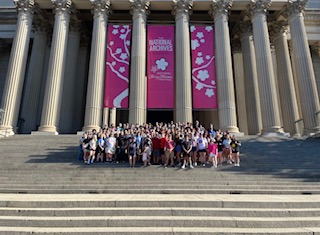
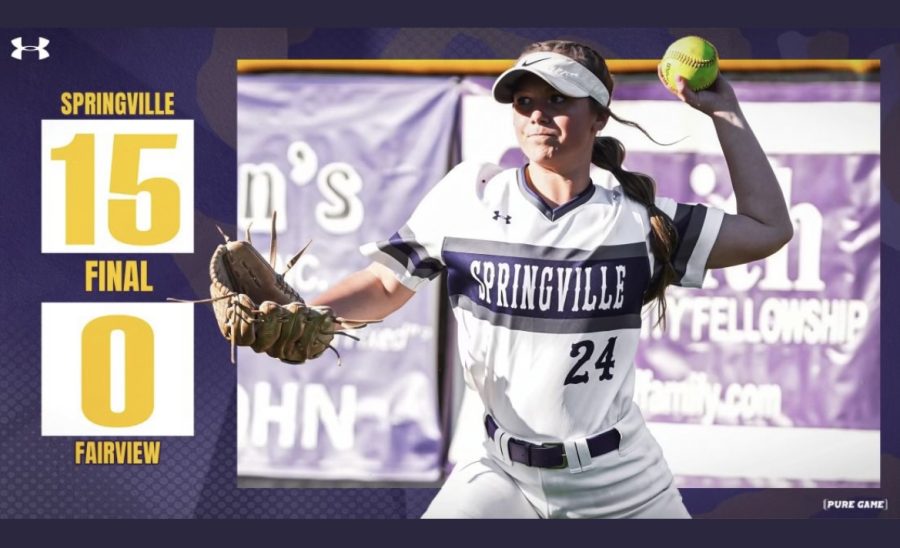




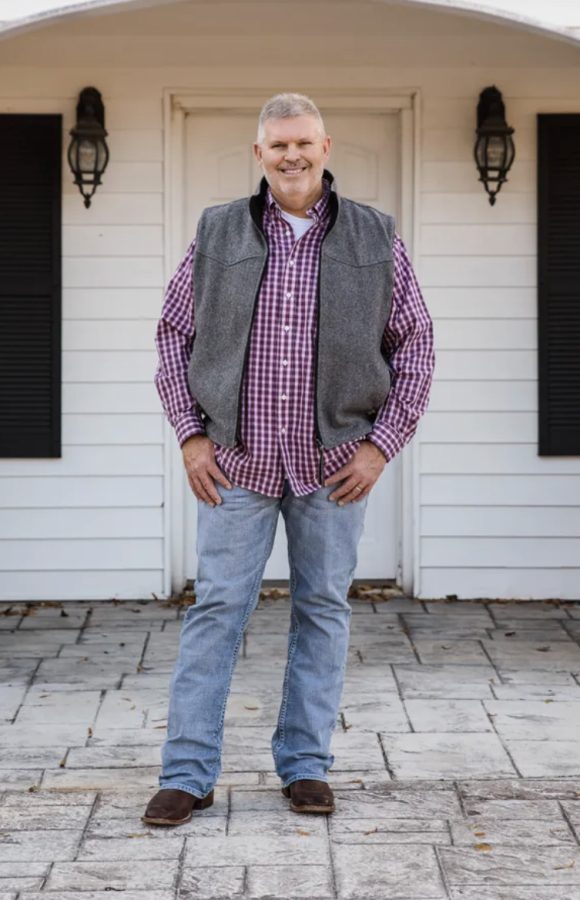


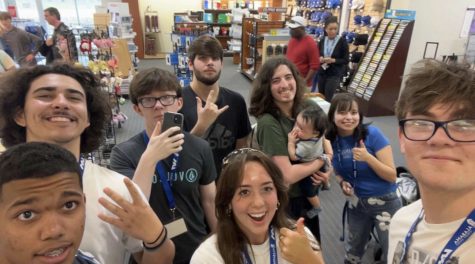

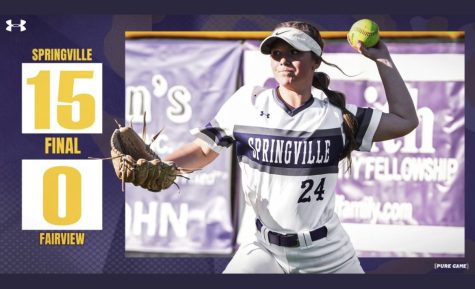
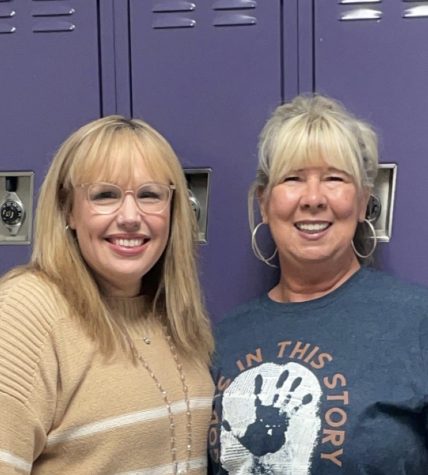
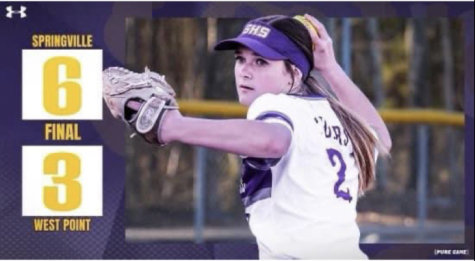


Joe Whitten • Nov 17, 2021 at 5:07 pm
An excellent article! You grabbed my attention with your first sentence and held it. Then bringing the weather back in at the conclusion was spot on.
Virgil Walker • Nov 10, 2021 at 5:43 pm
Amazing!!! Please keep writing. You’re a natural.
Sue Lander • Nov 10, 2021 at 9:25 am
Beautiful tribute, Shannon! It is a blessing to see you using your God-given talents to bless others!
Don Thomas • Nov 10, 2021 at 8:06 am
Very proud of you Shannon! Both as a person and musician
Shannon Slaughter • Nov 9, 2021 at 9:23 am
I am honored and deeply humbled by this and so undeserving but grateful. I love your writing and I’m very proud of you and I’m proud to say you were one of my students. Thank you Libby!
Raven Dennis • Nov 7, 2021 at 6:20 am
I hate to read, really! But I was totally captured by your gift to write. I was there totally and if this was a novel I would be tempted to indulge myself from the normal to continue reading. Hope to hear before long that you have reached fame and recognition at an early age and God shows you much favor. Be the light and the path! Be the gift that keeps on giving. Your teacher must be very proud of you and greatly humbled to think how you and others see him. I have a teacher story and I wish I could express her effect she had on me and others. Your Grandmother Charlotte is a character and the stories? Her connections reach beyond Verizon’s. LOL will look forward to more of you.
Slaughter • Nov 8, 2021 at 9:50 pm
I am deeply humbled by this article. You are a great writer Libby and I’m very proud of you!! I certainly feel fortunate and blessed to have had some great students during my time at SHS, including you. I have another crop of stellar APUSH students this year from whom I expect nothing less than legendary greatness. I really don’t know what to say other than thank you for such a tribute befitting a much more accomplished teacher than I. I’m eternally grateful.
Casey • Nov 5, 2021 at 4:30 pm
Seargent Slaughter